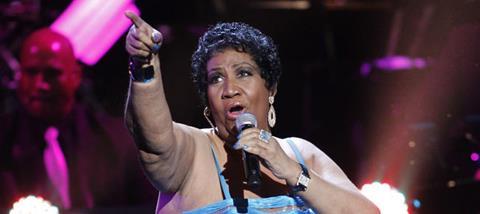
Throughout her 50 year career, Franklin mastered the lexicon of American Music; Jazz, Soul and R&B. There was even a highly listenable George Michael collaboration. But her dizzying technique was rooted in Gospel music; the ripping wails and riveting delivery that hinted the singer was channeling an other-worldly force.
When Franklin returned to her roots, the results touched transcendence. 1972’s 'Amazing Grace' and 1987’s 'One Lord, One Faith, One Baptism' are classics.
Even as she succumbed to cancer during her twilight years, her faith remained. Moreover, she recognised that her talent was less a gift than a responsibility: "Being a singer is a natural gift. It means I’m using to the highest degree possible the gift that God gave me to use. I’m happy with that."
A mainstream artist’s confession of faith is sometimes met with suspicion by the Christian community. Aretha Franklin was a double divorcee who blurred the line between sacrament and sexuality. Her weaknesses, made sonic by the rasping cracks of her voice, made her continual faith all the more compelling.
Following in Franklin's footsteps...
If Franklin was to be praising God publicly today, I expect she would face a similar rejection to Grime MC Stormzy. Sure, he raps about God's grace, but somewhat ironically, his occasional swearing ensures some Christians hurl stones at him and doubt his faith. My own view is when a widely beloved artist salutes God in the middle of a BRIT awards performance, that’s something all Christians should celebrate.
Stormzy isn't the only popular artist who seems to be interested in taking gospel music to the masses. It's become somewhat of a trend, with even Snoop Dogg releasing a gospel album (Bible of Love) earlier this year. Or take Chance the Rapper's 2016 mixtape Colouring Book. It broke records as the first streaming-only album to be recognised at the Grammys. To say the Chicago MC is "also" a Christian is to undermine the centrality of faith to his music. Tracks such as 'Blessings' and 'Finish Line' mix layered gospel harmonies and nimble lyricism into hip-hop psalms that break into the mainstream while never sugar-coating the message.
Chance (who has collaborated with Kirk Franklin) will leap on a beat with platinum-selling sinners like Lil Wayne and Future, which might confuse listeners who expect their music to provide airtight moral lessons, but the point is that Chance is there. He’s not dragging out a living in the lower reaches of the bargain bin. Instead, he’s securing his seat alongside the most influential voices of the day, and modelling an alternative path for the world’s most lucrative music genre. He still cusses plenty, for sure; but his verses point listeners into an alternative path.
It's encouraging to see Christians making their mark across the creative industries. Before he graduated high-school, Remington Scott had invented motion capture, the revolutionary film technology that allows an actor’s performance to be projected onto a computer generated character. It was this innovation which made Andy Serkis’s portrayal of Gollum possible, realised James Cameron’s $200 million vision for Avatar, and continues to be central to blockbuster cinema. Now, Scott is leading trailblazing work into Viritual Reality technology. This devout Christian is representing Christ at the beginning of the next digital revolution.
Creativity is God's idea
We are creative beings. Our God is the ultimate creator, the artist who arranged the stars, the engineer behind the human body. Our drive to create is descended from that desire, the pleasure we take in realising our gifts not entirely distant from God’s satisfaction on the seventh day. He saw his work was good. We are called to pursue a similar satisfaction in our works on earth.
1 Timothy 4:14 puts it best "Do not neglect the gift you have, which was given you by prophecy when the council of elders laid their hands on you." We all have our individual gifts, and the onus is upon us to use those blessings to honour God.
Franklin, Chance, and Remington perform at the highest level of artistry. Their work is inspirational because it is driven not by pride, but by gratitude to a creator who blessed them with the ability to bless others. I want to be clear here; there is nothing small-minded about leading worship in church. At all. But these Christians are informing secular culture and are prompting discussion of Jesus in our major newspapers. Both callings should be valued and celebrated.
This is not a call to sugarcoat our message so it slips into the Spotify playlists more smoothly. After all, Romans warns "Do not be conformed to this world, but be transformed by the renewal of your mind, that by testing you may discern what is the will of God, what is good and acceptable and perfect" (12:2). Christians shouldn’t excuse themselves from the mainstream music world. Yes, it can be a difficult, even nasty, place to work. But it need not be a godless place.
Aaron Loose is an English student at the University of Exeter and the editor of music journalism at Exeposé. He tweets at @aaronloose99
SPECIAL: Subscribe to Premier Christianity magazine for HALF PRICE (limited offer)





























